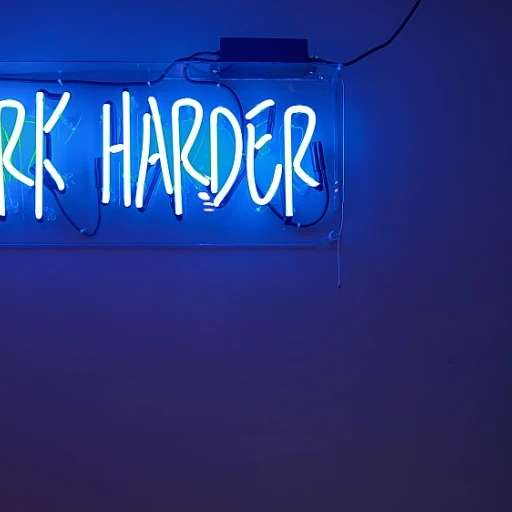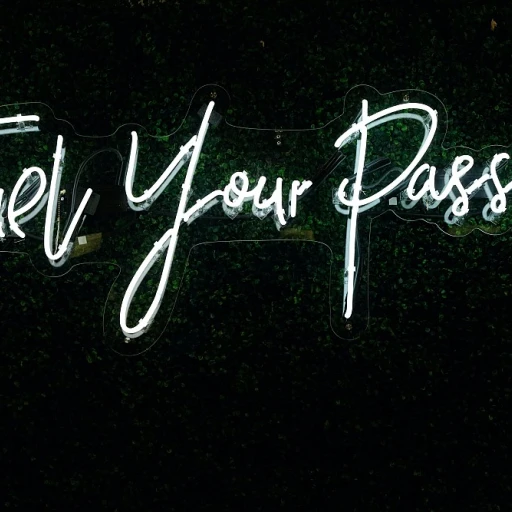The Bedrock of Business: Understanding Personal Ethics
Tracing the Origins: Personal Ethics as the Foundation
Delving into the essence of personal ethics is akin to exploring the DNA of a company's culture. These are the core beliefs and moral principles that steer us in our daily lives—both in and out of the office. Their roots run deep, influencing decisions and behavior, and ultimately sculpting a company’s ethos. A study on ethical behavior in organizations conducted by the Ethics & Compliance Initiative (ECI) highlights that over 80% of employees who work in an environment with a clearly articulated code of conduct are less likely to compromise ethical standards. This fact underscores the enormous sway that personal ethics have on professional conduct.
Personal Ethics: The Invisible Hand in Business
When personal values align with professional responsibilities, the invisible hand of personal ethics not only guides but also protects a company's operational integrity. An often-cited manifesto for ethical business conduct, the Ethics Resource Center’s National Business Ethics Survey, affirms that companies with strong ethical cultures observed a reduction in misconduct of over 60%. By embracing ethics as a personal commitment, employees become vanguards of corporate trust and reliability. navigating LGBT rights in corporate strategy offers an excellent example of how aligning ethical views with corporate policies fosters an environment that values diversity and respect.
Ethical Lighthouses: Illuminating Professional Pathways
The stories of business luminaries often reveal that personal ethics don't merely influence actions; they serve as veritable lighthouses in the tumultuous seas of industry challenges. For instance, in Ethisphere's annual ranking of the World's Most Ethical Companies, it is evident that organizations led by individuals with strong ethical convictions consistently outshine their competitors. This has led to a growing trend where companies are not only encouraging but actively training leaders to develop strong personal ethics to navigate the complex landscape of modern business.
The Ripple Effect of Personal Values on Professional Actions
Values in Action: When Personal Becomes Professional
Imagine walking into a room that's humming with activity. Each person is a cog in a vast machine, but have you ever stopped to ponder what keeps those gears turning smoothly? It's the core values and personal ethics of each individual that often go unnoticed yet are ever-present.
When we chat about how an individual's personal ethics influence their professional life, we're talking about the essentials. It's a bit like baking; your personal beliefs are the ingredients that you bring to the workplace recipe. These beliefs impact how you interact with colleagues, resolve customer complaints, negotiate contracts, and lead teams.
Studies suggest that employees' personal ethics are significantly linked to their work behavior. For example, a survey by the Ethics & Compliance Initiative (ECI) found that companies with a strong ethical culture had 65% fewer misconduct incidents than average. So, when someone's ethical compass is pointing in the right direction, the whole company tends to follow.
From Principles to Practice: Ethical Dilemmas in the Trenches
Now, let's get into the thick of it—ethical dilemmas. They're the tricky situations that make you sweat, the moments where right and wrong aren't as clear as we'd like. Picture a sales rep who finds out that a competitor's product might be dangerous. Do they stay silent to keep the competitive edge or speak up for the greater good?
It gets interesting when we notice that personal and professional ethics can sometimes be at odds. A study published in the Journal of Business Ethics noted discrepancies between what employees considered 'ethically okay' in private versus public spheres. So, when we discuss ethical behavior at work, we're tapping into a juggling act between what a person believes and what the company expects.
Case in Point: Ethical Values and Business Choices
To ground our ideas, let's look at a story that popped up a while back. Hank, an accountant, identified that cutting corners on safety could save costs short-term, but it didn't sit right with his concept of doing the right thing. His personal code pushed him to raise concerns, leading to a decision that favored employee wellbeing over immediate profit. This example isn't just a one-off; it's a vivid illustration of how personal ethics can boldly shape business concerns and lead to long-term sustainability.
Our actions—whether whipping up an ethical framework or choosing to bid farewell to that tempting but shady deal—are the tangible manifestations of our inner moral principles. These actions create ripples through our teams, shaping the culture and the ethical pulse of where we work.
Crafting a Personal Ethical Compass: Examples from Industry Leaders
From Principles to Practice: How Leaders Set the Ethical Tone
In the fabric of corporate culture, a leader's personal ethical framework is not just a silent testament but a loud declaration of their character. It transcends the private domain, embedding itself within professional interactions and decisions. Just as a well-charted map guides a traveler, a clear ethical blueprint shapes the actions and policies of those at the helm of business endeavours.
Charting the Course with Ethical Insights
Consider the case of tech giants and how they address ethical concerns. As they usher us into the future with innovations in cyber security, the leading minds within these organizations carry a hefty responsibility. It's not solely about safeguarding data; it's about modeling the ethical use of technology. By fostering transparency and respecting privacy, they create a template for others to follow. It's the intersection where personal ethics meet professional obligations, both driving and constraining technological progress.
Real-World Portraits of Ethical Leadership
Take the example of leaders like You Lee Nallalingham, who emphasize the importance of a well-crafted personal ethics statement. This isn't just a mere suggestion; it is a strategic tool to navigate ethical dilemmas, ensuring actions align with core values. It's a testament to why personal and professional ethics cannot live in silos. The two feed into each other, creating a person's holistic ethical view that reverberates throughout their spheres of influence.
Ethics in Action: Nurturing Trust and Generating Value
When leaders cast ethical behavior as a priority in their day-to-day operations, it generates a ripple effect. They become role models, which in turn influences the ethical behavior of their teams. This is no abstract theory; research consistently indicates that ethically-oriented companies enjoy higher levels of trust among stakeholders, which ultimately translates into long-term value for all parties concerned. This is the robust backbone supporting not just an individual's career but the enduring success of the entire company.
Conclusion
In conclusion, while personal ethics may initially seem like a private affair, the essence of morality and values becomes a shared asset in a corporate setting. Leaders who embrace and articulate their ethical stances are not just standing up for what they believe in; they're setting the stage for sustaining an ethical corporate culture. It is their steadfast commitment to ethics that acts as a guide within the bustling arena of professional challenges.
Implementing Ethical Guardrails: A Strategy for Business Resilience
Championing Ethical Practices for Organizational Fortitude
Within every corporation, a silent but powerful force underlies the fabric of its culture: personal ethics. The ability to weave ethical considerations into the strategic framework not only serves as a moral compass but also fortifies the business against potential challenges. In crafting company policies and the broader decision-making landscape, implementing ethical guardrails is tantamount to ensuring long-term resilience.
The Anatomy of Effective Ethical Frameworks
Personal conduct within the workplace significantly contributes to the overall ethical climate. Recent studies indicate that a staggering 92% of employees believe it’s important to work for a company where they can uphold their personal ethics. A driven employee aligned with company values is not only more productive but also a beacon for fostering an ethical corporate culture.
Conversely, ethical lapses can lead to unethical behavior in business, eroding trust and harming professionalism. An effective ethical framework therefore includes clear guidelines that support ethical behavior while providing mechanisms to address ethical concerns, particularly ethical dilemmas in the workplace. Stepping stones towards an ethical workplace involve firm policies, but they must be accompanied by actionable, relatable examples, setting a standard for ethical decision making.
Moral Principles As Corporate Pillars
The alignment of personal ethics with professional conduct brings to light the essence of an individual's core values. These principles, when echoed in corporate charters, become the pillars upon which business sustainability rests. Case studies from leading companies show that embedding moral principles such as honesty, integrity, and social responsibility into everyday work life strengthens corporate defenses against ethical breaches.
This integration of personal ethics with professional ethics forms a robust bulwark, enabling companies to navigate challenges without compromising their ethical standards. For example, a report from the Ethics & Compliance Initiative (ECI) indicated that organizations with strong ethical cultures experienced 56% fewer cases of misconduct. This statistic underscores that a well-implemented ethical framework is not just aspirational—it’s a strategic imperative that yields quantifiable benefits.
In essence, a company's statement on ethics transcends mere words; it must be lived and breathed through its actions and choices. An effective ethics statement lays the groundwork for building an organization that can withstand the test of time and controversy.
Case Studies: Ethics in Action
In looking at real-life examples, companies like Patagonia and The Body Shop have long stood as case studies for the marriage of personal and professional ethics. Both companies have committed to environmental stewardship and fair labor practices, echoing their leaders' personal convictions. Moreover, their ethical commitments are ingrained in their business strategies, resulting in a loyal customer base and resilient brand image.
Embracing the broader social responsibility, employees are often encouraged to volunteer, take action on social issues, and contribute to community welfare, reinforcing that their personal values align with their employer’s ethos. Businesses that lead with such values not only gain societal trust but also perform better financially. As articulated by You Lee Nallalingham in her work on leadership, companies with robust ethical commitments often see enhanced consumer trust and improved market position.
In conclusion, there is an unequivocal link between the steadfast adherence to personal ethics within the corporate realm and the successful navigation of the unpredictable waves of the business sea. The implementation of ethical guardrails is a strategy no company can afford to overlook if it hopes to maintain not just its profitability, but its integrity and legacy as well.
Decoding the Ethical Code: Integration into Company Policy
From Personal Judgment to Organizational DNA
When examining the impact of personal ethics on the workplace, one cannot underestimate the influence these individual beliefs have on shaping a company's policy. Sure, a well-drafted code of conduct serves as the backbone of an organization's ethical landscape, but it's the personal integrity of each employee that reinforces this structure. Recognizing the key role personal ethics play in professional settings, business leaders are keen to weave these moral fabrics firmly into company policy. This melding ensures cohesive practices that align with the corporate vision, demonstrating a shared commitment to ethical behavior.
Translating Values into Policy: The Subtleties of Ethical Integration
How does an individual's sense of right and wrong become a part of a corporation's code? It begins with acknowledging that while personal ethics may vary, they commonly align with fundamental principles such as honesty, respect, and responsibility. As we've seen through the ethical concerns faced by major organizations, a lapse in personal judgment can lead to significant corporate crises. Acknowledging this, an effective strategy includes the establishment of clear ethical guidelines that resonate with personal virtues while delivering a uniform direction. The policy doesn't aim to overwrite personal moral compasses but instead seeks to resonate with them, creating a framework that employees can emotionally and intellectually subscribe to.
The Concrete Influence of Ethical Behavior on Performance
It's no secret that businesses thrive on metrics and performance indicators. Interestingly, the connection between ethical conduct and business outcomes has been substantiated by numerous studies. For instance, a Deloitte survey found that 94% of consumers and 84% of employees believe a strong personal ethics is important to business success. This reveals a striking truth: individuals don't leave their values at the door; instead, they bring them to their desks, influencing every decision, interaction, and transaction. Ethical policy integration thus becomes a strategic tool, not only for crisis aversion but also for fostering an environment where excellence in performance is a natural byproduct of strong ethical principles.
Case Study: The Ethical Transformation
Consider the case of a tech giant grappling with cyber security breaches due to unethical employee actions. In response, the company revamped its code of ethics, drawing from the core values expressed by their workforce. As part of their operational shifts, they established regular ethical training, transparent reporting mechanisms, and a clear system of accountability. Post-implementation, they not only saw a reduction in security incidents but also experienced increased employee morale, customer trust, and ultimately, stockholder satisfaction. This transformation underscores the potent potential of aligning personal ethics with company policy – influencing not only internal practices but also shaping public perception and financial health.
Expert Insights on Ethical Cultures
Highlighting the expertise within this realm, ethics professionals such as Dr. Y Lee Nallalingham, an authority on corporate moral conduct, stress the importance of ethics being 'lived' rather than 'imposed.' In her book on organizational ethics, she underscores the idea of evolving from a 'rule-following' mindset to fostering a culture where employees embody ethical values naturally. This reinforces the notion of personal ethics as a strategic asset within business planning, extending beyond procedural compliance to become the heartbeat of organizational life.
Harmonizing Personal and Professional Ethics: A Balancing Act
The Symphony of Aligning Personal and Corporate Values
When it comes to the symphony of an organization, personal and professional ethics are like interwoven melodies that, when harmonized, create a powerful composition. This alignment is not just aspirational; it's rooted in a growing body of research indicating that when employees' personal morals sync up with their workplace's ethical standards, everyone benefits. A study from the Harvard Business School suggests that employees who feel a moral congruence with their organization are more committed and less prone to unethical behavior. Ethical alignment acts as a beacon, guiding decisions and behaviors towards a shared vision of integrity.
Cultivating Ethical Synchronicity
But how does one cultivate this enviable state of ethical synchronicity? It begins with openness. Leaders must be candid about their values, embodying the ethics they wish to see throughout their business. It's a trickle-down effect; when leaders display ethical behavior, employees are more likely to mirror these actions in their day-to-day roles. Companies like Patagonia, with its commitment to environmental responsibility, illustrate the potent impact of strong personal ethics becoming corporate ethos.
Charting the Impact of Personal Ethos
The impact of one's personal ethos extends beyond the immediate sphere of work. Social responsibility is more than a buzzword; it's a proactive stance an ever-increasing number of individuals and companies are taking to ensure their work aligns with broader societal values. Choices around suppliers, for example, are now often weighed with ethical scrutiny. Socially responsible investing, a trend where investments are made in companies that align with personal or organizational ethics, has surged, topping $17 trillion in US assets managed under sustainable investment strategies according to the US SIF Foundation. The impetus here is clear: ethical alignment is not just personally fulfilling but also a smart business practice that can drive both positive change and profits.
Addressing the Nuances of Ethical Dilemmas
Despite best intentions, ethical dilemmas are an inevitable part of professional life. The key to navigating these challenges lies in a deep understanding of one's core values and the ability to critically assess situations. Ethical decision-making frameworks are invaluable tools, aiding in consistent and transparent choices that resonate with personal and company ethics alike. This thoughtful approach to resolving conflicts not only strengthens personal integrity but also builds trust and credibility within a business setting.
Living Ethics: Real-World Applications
Harnessing the principles of personal ethics in a professional arena can transform abstract ideals into concrete action. This is evident in policies that address current ethical concerns, such as cyber security and data privacy. With cyberattacks on the rise, professionals with a strong ethical compass are crucial in protecting sensitive information and maintaining the trust of stakeholders. Bringing personal ethics into such critical issues underlines the idea that at the core of every business issue there lays a fundamental ethical question.
The Ongoing Journey of Alignment
Today's employees are not content with simply clocking in and out—they are seeking purpose and alignment with their deeper values. As this becomes a pivotal factor in talent retention and job satisfaction, companies are re-evaluating their ethical codes to ensure they reflect a culture that individuals want to be part of. These efforts represent an ongoing journey, as values and societal norms continue to evolve. It's a nuanced dance between the personal and professional realms, and mastering it can mean the difference between a good company and a great one.
Beyond The Bottom Line: Ethics in Decision Making and Leadership
Ethical Decision Making: The Intersection of Morality and Business Acumen
In the dynamic business landscape, choices made by leaders reverberate across their organizations and beyond. The fabric of personal ethics woven by an individual isn’t merely a private matter; it becomes part of the larger pattern that constitutes the decision-making process in a professional setting. When executives face complex challenges, the grounding principles of their personal ethics are pivotal. At this intersection of morality and business acumen lies the capacity for truly transformative leadership.
The Entwined Paths of Ethical Leadership and Company Direction
Leaders occupy a unique position where their decisions can foster an environment of trust or one of uncertainty. Ethical decision-making in leadership extends beyond conventional success metrics to include the broader impact of actions. As a result, how leaders interpret their personal ethical compass can set a company’s ethical altitude. Their actions send a clear signal about the true north of the company’s values, steering both culture and strategy towards responsible business practices. The behavior of company leaders—whether they uphold transparency in communication, show respect for stakeholder interests, or demonstrate accountability—becomes a case study in ethics for employees, shaping organizational standards and expectations.
Inculcating Ethical Practices in The Heart of Business Decisions
Decision-making that is deeply embedded in personal ethics is a cornerstone for leaders who aim to operate with integrity. When faced with ethical dilemmas, these leaders draw from a well of core values that reflect both personal and professional ethics. For instance, a leader might champion environmentally sustainable practices not just for compliance or branding but out of a genuine concern for social responsibility. Studies highlighting consumer preferences suggest that such ethical stances can also be smart business moves. A Nielsen report indicated that 66% of consumers are willing to pay more for sustainable brands, illustrating the alignment of ethical actions with market trends.
Personal Ethics: A Lens for Navigating Complexity in Business
Every day, corporates navigate a maze of decisions on cyber security, data privacy, HR policies, and the like. Leaders with a strong grounding in personal ethics find themselves equipped to view these complex scenarios through an ethical lens. Ethical behavior in times of uncertainty can help mitigate risks and fortify a company's reputation. As elucidated in earlier discussions about crafting a personal ethical compass and the impact of personal values on professional actions, the individual ethics of each person in a leadership role collectively contribute to the ethical fiber of the company.
The Enduring Impact of Ethical Leadership on Company Evolution
The narrative of a business is often peppered with pivotal moments where leadership decisions have profound consequences. Ethical considerations in such decisions can have far-reaching implications, influencing a company’s trajectory. By embracing moral principles, leaders can not only navigate the immediate complexities but also shape the future of the business responsibly. It’s this blend of foresight and ethical consideration that can leave a lasting legacy, ensuring that the company's journey is marked by both success and integrity.
Conclusion: Ethics in Action as the Beacon for Business Excellence
Our contemplation of the bedrock of business and the manner in which personal values infiltrate professional realms shows that the marriage of personal ethics and professional acumen is indispensable. As leaders endeavor to balance the scales of profitability with ethical imperatives, their personal ethos forms the keystone of sound decision-making and virtuous influence. In essence, by prioritizing ethics in every decision, leaders do not just decide for the moment; they sculpt a value-driven trajectory for their companies, elevating the standard for what it means to be successful in business.
Leaving a Legacy: How Personal Ethics Shape Company Future
Nurturing the Ethos for Enduring Success
When we speak of personal ethics, it's not just a snapshot of who we are in the present—it's also about the imprint we leave that outlasts our tenure. Integrating personal ethics into the fabric of a company's culture is akin to setting the GPS for the organization's long-term journey. Data tells us that companies with strong ethical cultures outperform their peers; a study by Ethisphere found that the World’s Most Ethical Companies outperformed the large cap sector over five years by 14.4% in 2020. This paints a clear picture: personal ethics are not just feel-good policies but critical tools for sustainable success.
Blueprints for an Ethical Future
In the era where business ethics and social responsibility can make or break a company, leaders and employees alike must consider the kind of legacy they wish to create. Consider You Lee Nallalingham, whose personal journey and ethical stance led to noteworthy community contributions. Nallalingham’s choice to prioritize ethical practices has not only influenced their day-to-day operations but also carved out a company legacy of integrity and community involvement. This is reflective of the broader notion that a person's core values resonate through their professional sphere, echoing into the company’s tomorrow.
Impact Beyond the Balance Sheet
At the crossroads of personal and professional ethics, lies the capacity to shape not just a business, but a society. A leader’s personal code of ethics often translates into their leadership style, thereby influencing their team's behaviour and the business's strategic direction. When a leader’s ethical stance forefronts honesty and fairness, for instance, it sets a tone that reverberates across the organization, encouraging similar behaviour in others. A Harvard Business Review article emphasized that ethical leaders have teams with better collaboration and commitment, highlighting that ethics go beyond mere compliance; they are the catalyst for collective excellence.
Envisioning Tomorrow's Ethical Culture Today
To architect a company's future, one must inform and inspire ethical decision-making at all levels today. Storytelling becomes a useful tool here, where narratives of past ethical dilemmas and the reasoning behind ethical decisions become teachable moments that instil a company’s values. This is not folklore, but tactical embedding of a company’s ethical blueprint within its cultural DNA. Crafting an enduring legacy means recognizing that every business decision is a brushstroke on the canvas of your company's ethical identity.
The Inheritance of Ethical Integrity
The narrative of a business is not confined to its commercial success but includes the richness of its ethical stance. As we've seen, ethical behaviour and choices become integral to a company's reputation and brand identity. What’s essential is the inheritance we pass on; a legacy made up not only of balance sheets but of the moral principles governing a company's existence—their personal ethics statement is etched into history for future generations to embrace and continue. And as each member of an organization crafts their own ethical concerns, they contribute to a tapestry that will colour the organization’s character far beyond any one individual’s tenure.


-large-teaser.webp)











